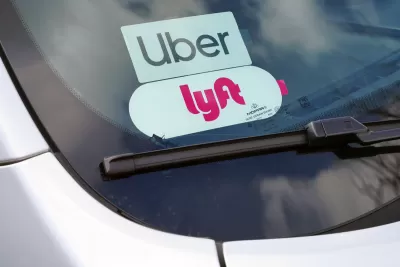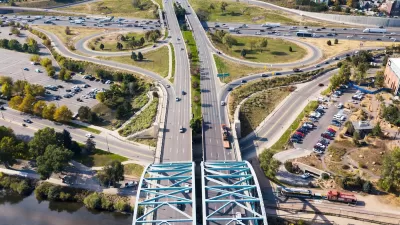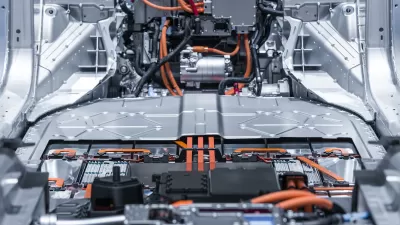A new study out of UC Davis details how ride-hailing services like Uber and Lyft impact more sustainable modes of transportation like transit, cycling, and walking from the perspective of user behavior.

A new study out of the University of California, Davis Institute of Transportation Studies found that more than half of ride-hailing trips taken by surveyed riders in California replaced more sustainable transportation options or created more vehicle miles. That means people who would have otherwise walked, cycled, carpooled, taken public transit, or not made the trip at all chose to hail an Uber, Lyft, or other similar service instead. “This suggests ride-hailing often tends to replace most sustainable transportation modes and leads to additional vehicle miles traveled,” according to an article on UC Davis’s website.
In the early days of ride-hailing services, there was a lot of hope that they would help reduce pollution and congestion, but that has since been disproven. Back in 2020, Planetizen shared articles from Verge and Bloomberg CityLab that discussed results of two studies that proved the opposite: Uber and Lyft generate 70 percent more pollution than trips they displace, and the time ride-hailing drivers spend looking for fares offsets any environmental benefits created by the industry. This new study from UC Davis, which was conducted to help guide development of California’s Clean Miles Standard, adds a new dimension to those findings: user behavior.
When not used sustainably, ride-hailing can “increase traffic, reduce the use of public transit — an economical and sustainable mode of transportation for a variety of income levels — and increase social inequities,” according to the UC Davis article. In addition to their findings, coauthors Giovanni Circella of the UC Davis Institute of Transportation Studies and Mischa Young of the Université de l’Ontario français in Canada make recommendations to improve the sustainability of ride-hailing trips, including ways to ensure those services complement public transit and other sustainable transportation modes rather than replace them.
FULL STORY: Half of Uber, Lyft Trips Replace More Sustainable Options

Planetizen Federal Action Tracker
A weekly monitor of how Trump’s orders and actions are impacting planners and planning in America.

Congressman Proposes Bill to Rename DC Metro “Trump Train”
The Make Autorail Great Again Act would withhold federal funding to the system until the Washington Metropolitan Area Transit Authority (WMATA), rebrands as the Washington Metropolitan Authority for Greater Access (WMAGA).

The Simple Legislative Tool Transforming Vacant Downtowns
In California, Michigan and Georgia, an easy win is bringing dollars — and delight — back to city centers.

The States Losing Rural Delivery Rooms at an Alarming Pace
In some states, as few as 9% of rural hospitals still deliver babies. As a result, rising pre-term births, no adequate pre-term care and harrowing close calls are a growing reality.

The Small South Asian Republic Going all in on EVs
Thanks to one simple policy change less than five years ago, 65% of new cars in this Himalayan country are now electric.

DC Backpedals on Bike Lane Protection, Swaps Barriers for Paint
Citing aesthetic concerns, the city is removing the concrete barriers and flexposts that once separated Arizona Avenue cyclists from motor vehicles.
Urban Design for Planners 1: Software Tools
This six-course series explores essential urban design concepts using open source software and equips planners with the tools they need to participate fully in the urban design process.
Planning for Universal Design
Learn the tools for implementing Universal Design in planning regulations.
Smith Gee Studio
City of Charlotte
City of Camden Redevelopment Agency
City of Astoria
Transportation Research & Education Center (TREC) at Portland State University
US High Speed Rail Association
City of Camden Redevelopment Agency
Municipality of Princeton (NJ)





























